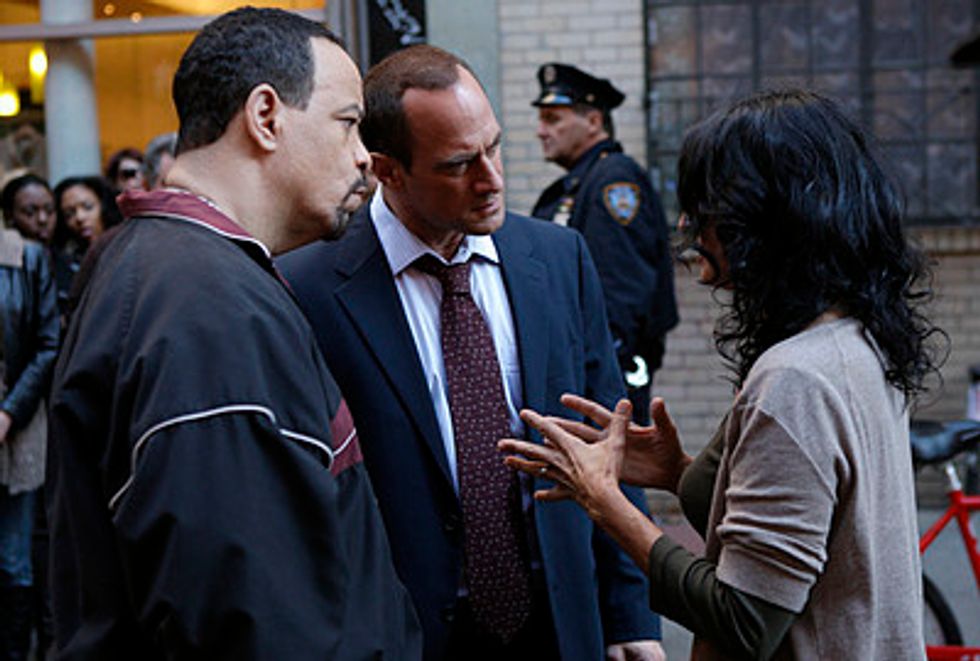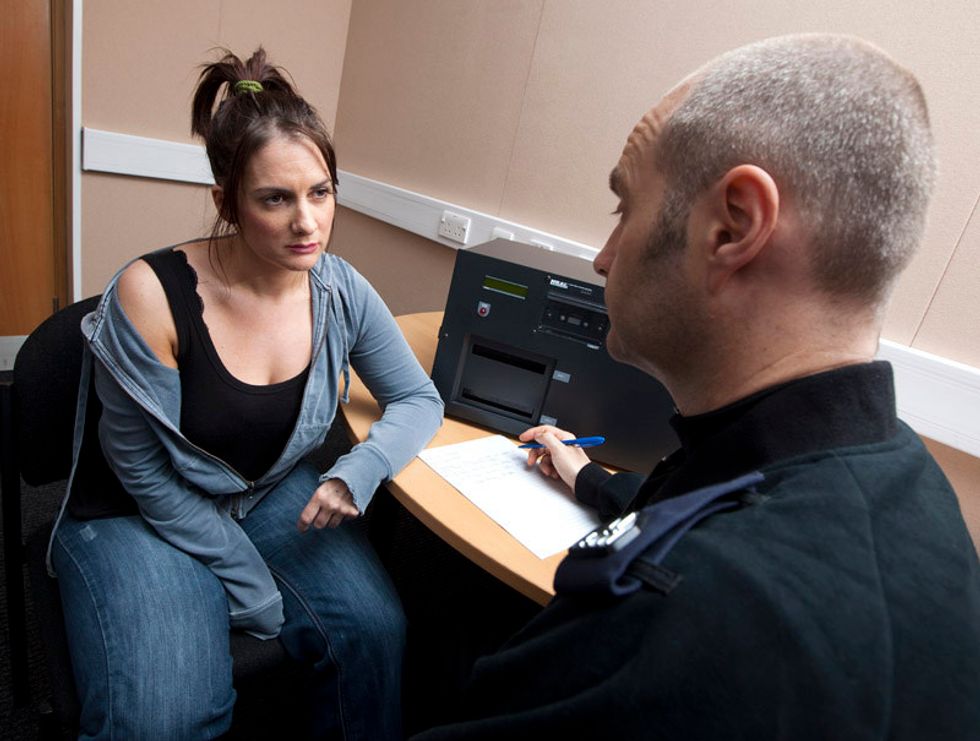Campus sexual assault is a rising issue in the United States, with more and more incidents being reported (and many more unreported) on college campuses nationwide every day.
While the issue is actively being addressed all over the country, due to the vast variety of cases, you should know for yourself how to respond if something were to happen to you. If you are a victim of sexual violence in any form, you should be aware of the following ten points whether or not you plan on reporting your attack:
1. Preserve any useful evidence you can
Do everything in your power to avoid damaging any evidence that may be pertinent to your case. Don't change your clothes and wait to use the restroom if you can. Refrain from showering or fixing your hair as well. While you'll naturally want to eliminate the physical reminders of what took place, it's important that you keep as much of the original evidence intact as possible.
A rape kit is most effective at picking up evidence within 72 hours of the incident, but you can still request a forensic exam at your local hospital or medical center after this window has passed and still yield DNA and other tell-tale signs of forced contact.
In an effort to preserve your clothes, jewelry, and other items, place all of the belongings that were on your person during the attack in a paper bag.
NOTE: The Violence Against Women Act prohibits any of the 50 states from charging you for sexual assault medical forensic exams. In other words, it will not cost you a single penny to get examined by a healthcare professional.
2. You must notify emergency responders and/or law enforcement ASAP

If you are still in immediate danger, ensure that you are safe before you try to call 911 for assistance. Some college campuses are equipped with emergency beacons that can connect you to help at the press of a button. Following the attack, however, you should stop by the nearest police station yourself to file a report on your behalf. The sooner after the incident you go, the better.
Keep in mind that undergoing a traumatic event can distort or even destroy your memories of the encounter. And that's okay. Law enforcement personnel are trained to recognize signs of trauma and will be accommodating to you after your assault. Don't doubt your own credibility just because some of the specifics aren't clear. Your voice deserves to be heard regardless of those small details you can't bring yourself to remember.
3. Know your drug/alcohol use DOES NOT make the attack your fault

You might be hesitant to report your sexual assault to law enforcement because that would mean you'd have to admit that you were using drugs or alcohol in that same timeframe. But the fact that you were intoxicated in any capacity before or during the assault does not take away from the believability of your words. Just because you were tipsy or even passed out doesn't mean that the perpetrator had the go-ahead to violate you. You were impaired and therefore could not legally consent to the sexual act that followed. The rapist or assailant is the one who is accountable for the illegal act that took place, not you.
Many campus authorities (if not all of them) grant their students amnesty in terms of unlawful substance use if they were victims of sexual assault. You will NOT be charged for your personal consumption of drugs or alcohol. Don't let your intoxication discourage you from filing a report about the incident; your safety and recovery from this tragedy is far more important than getting booked for a slight policy violation.
4. Be prepared to tell as much of the story as you can remember

You will likely be interviewed by police several times so that they can confirm details you mention every time you tell the story. Their questions may be repetitive and uncomfortable, so you have every right to ask for a break whenever you need one. The interviewing process could take several hours depending on how busy the station is. Take your time and pace yourself to go only as fast as you can handle. The officers are listening to you and they believe you; they are only asking you to repeat yourself to streamline your account of what happened.
You can expect to be asked for a general timeline of the events, where you were when the assault took place, and any physical attributes you can recall that could help identify the perpetrator. You also have the right at any time to stop your report and withdraw it. The officers have no choice but to comply with your request, so don't hesitate to stop and discontinue your report if you feel that's what's best for you.
5. Campus police and local police WILL handle your case differently
Reporting your sexual assault to your university police is NOT the same as reporting it to local law enforcement. Colleges are not bound by the procedures of the criminal justice system. Instead, they are required by Title IX to address sexual misconduct and adjudicate based on the evidence and victim/witness testimonies they are presented.
The best your school can do is hold a disciplinary hearing with administrators who will judge your case and determine the next course of action. These individuals campus may not have much experience in sex crimes and therefore might not give you the closure you want. Also, while the burden of proof (what you need to prove that the alleged assailant is responsible) is much lower when dealing with campus incidents, your college will only be able to expel the offender at most.
Your university might not contact the police about the case, either, so if you are seeking help from the criminal justice system, be sure to reach out to them separately.
6. Reporting to local police can make your case a lot more publicized
When you go to the police with a sexual assault case, depending on the specifics, the proceedings could be very public. News sources might not publish your name, but they will cover the story of your assault to make people aware of the danger that may still linger in their community. In the event that the case goes to trial, however, you will likely cross paths with journalists, photographers, and other people trying to get their hands on whatever information they can.
The emotional and mental strain you are undergoing as a victim of sexual assault will only worsen if you decide to go public with your story. Family members, friends, school faculty, and even complete strangers may approach you about the matter even when you aren't in the courtroom setting. Keep in mind that the whole ordeal will be exhausting and time-consuming, but also know that you are strong enough to persevere in spite of it all.
7. Sexual assault of ANY KIND is a serious crime
Your attack doesn't have to involve unwanted penetration or even intercourse to be considered sexual assault. Sexual violence exists in a multitude of forms, ranging from (but not limited to) rape to stalking to verbal harassment. Whether or not you personally know the attacker is irrelevant; domestic abuse is treated just as drastically as an unprovoked attack by a stranger. And regardless of what exactly happened to you, if the interaction was undesired and nonconsensual, you are entitled to assistance from the law to see your assailant brought to justice.
8. Intimate partner violence (IPV) IS subject to prosecution
Just because you are in a romantic or sexual relationship with your assailant doesn't make their actions excusable in any way. Unless they had clear, consistent consent throughout the entire encounter, it doesn't matter who they are to you— they're still guilty of a serious crime. Your partner is subjected to the same laws that would persecute a stranger who abused you in that way. Plain and simple, if you did not consent to your partner's actions and they proceeded to touch you anyway, they violated you and need to be brought to justice.
9. Even without external injuries, you still can get a rape kit
A nurse's conducting of a sexual assault forensic exam— more commonly known as a rape kit— doesn't require you to have sustained outer injuries. The nurse is likely trained specifically in responding to incidents of sexual assault and will administer the exam with care and gentleness. Even if you did change your clothes and tidy up, you are still entitled to a thorough examination to check for internal signs of forced contact and any DNA or other materials that the assailant could have left on you.
If you suspect you have been drugged, you can request a test to see if you were given any of the traditional date-rape drugs or other substances.
10. You can seek an order of protection or restraining order against your assailant
In the event that you know your attacker or may be in close proximity of them, you have the right to obtain a protective or restraining order against them to prevent further unwanted contact. Ask local law enforcement officers or your attorney for more information on how to file one of these orders for your safety.
If you or someone you know is a victim of sexual assault, visit the following websites for additional guidance on how to begin your healing process:
RAINN (Rape, Abuse, and Incest National Network)
RAINN's National Sexual Assault Online Hotline (or call at 800.656.4673)
United States Department of Justice
Office of Women's Health: Relationships and Safety






















